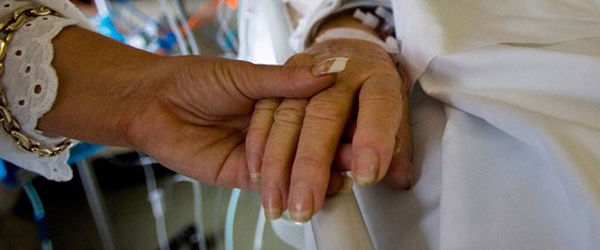The Catholic Church's relationship to Judaism as taught by the Second Vatican Council and the interpretations and developments of that teaching by subsequent popes, "are binding on a Catholic," said the Vatican official responsible for relations with the Jews.Swiss Cardinal Kurt Koch, president of the Pontifical Commission for Religious Relations with the Jews and a member of the Congregation for the Doctrine of the Faith, spoke to reporters May 16 after delivering a speech on Catholic-Jewish relations in light of Vatican II's declaration "Nostra Aetate" on the church's relations with non-Christian religions.
The afternoon speech followed Cardinal Koch's participation in a meeting of the doctrinal congregation to examine the latest progress in the Vatican's reconciliation talks with the traditionalist Society of St. Pius X.
"There are questions to clarify in discussions with this community. I can't say more than that," he told reporters, echoing a Vatican statement saying the reconciliation talks are ongoing.
In addition to the highly publicized position of Bishop Richard Williamson, an SSPX bishop who denies the Holocaust, public statements by the society's superior general, Bishop Bernard Fellay, leave in doubt whether the society as a whole accepts the entirety of "Nostra Aetate," including its condemnations of anti-Semitism and of the idea that the Jews were to blame for the death of Jesus.
"All the doctrinal decisions of the church are binding on a Catholic, including the Second Vatican Council and all its texts," Cardinal Koch said when asked if the SSPX would be expected to accept all the teachings of Vatican II. "The 'Nostra Aetate' declaration of the Second Vatican Council is a clear decree and is important for every Catholic," he added.
At the same time, Cardinal Koch said, "it is very necessary to make clear the difference between the position of the Society of St. Pius X and the negation of the Shoah (the Holocaust), which is a position that has no place in the Catholic Church. It is very clear."
Following the revelation of Bishop Williamson's comments about the Holocaust, SSPX leaders issued a statement saying his position in no way reflected the views of the society. "I'm very happy about this," Cardinal Koch said. "The Holy Father has spoken clearly about this position of Williamson, that it's not possible, there is no place for deniers in the Catholic Church."
In his speech at Rome's Pontifical University of St. Thomas Aquinas, Cardinal Koch said "Nostra Aetate" is "the 'foundation document' and the 'Magna Carta' of the dialogue of the Roman Catholic Church with Judaism."
The declaration highlighted the Jewish roots of Christianity and took "an unambiguous position against every form of anti-Semitism," he said.
The church's theological reflection on its Jewish roots, as well as on the relationship between God's covenant with the Jewish people and the new covenant instituted by Christ have been developed further and authoritatively by Blessed John Paul II and Pope Benedict XVI, he said.
God's plan of salvation for humanity began with his covenant with the Jewish people and if Christianity ignores that, he said, "it is in danger of losing its location within salvation history."
Cardinal Koch said that for Pope Benedict, the key to the theological understanding of the importance of a relationship with Judaism and Jews is that the Bible is one book detailing the entire history of salvation.
While Catholics profess that, in the end, all salvation will be accomplished through Jesus Christ, "it does not necessarily follow that the Jews are excluded from God's salvation because they do not believe in Jesus Christ as the Messiah of Israel and the son of God," the cardinal said. "That the Jews are participants in God's salvation is theologically unquestionable, but how that can be possible without confessing Christ explicitly is and remains an unfathomable divine mystery."
The cardinal said, "The Catholic Church neither conducts nor supports any specific institutional mission work directed toward the Jews," but that does not exclude Christians bearing witness to their faith "in an unassuming and humble manner."
Pope: Interreligious dialogue crucial for humanityA week earlier, in reaffirming the Second Vatican Council's teaching on Christianity's special relationship with Judaism, Pope Benedict said Catholic-Jewish dialogue is "crucial for the future of our human family."
"In a world increasingly threatened by the loss of spiritual and moral values, which are those that can guarantee respect for human dignity and lasting peace," dialogue, friendship and collaboration can "give prophetic witness to the power of the truth of God, justice and reconciling love for the good of all mankind," the pope said.
Meeting May 10 with a delegation from the Latin American Jewish Congress, the pope also spoke about the 50th anniversary in October of the opening of the Second Vatican Council.
He said "Nostra Aetate," the council's declaration on the church's relationship with non-Christian religions, "remains the basis and guide in our efforts to promote greater understanding, respect and cooperation between our two communities."
The document, he said, "not only took a clear stand against all forms of anti-Semitism, but also laid the foundations for a new theological evaluation of the relationship between the church and Judaism and expressed confidence that the appreciation of the spiritual heritage shared by Jews and Christians would lead to greater understanding and mutual respect."
Thanking God for improved Catholic-Jewish relations around the world, Pope Benedict said the communities must continue their commitment to dialogue because "much remains to be done in overcoming the burdens of the past, in promoting better relations between our two communities and in responding to the challenges facing more and more believers in the world today."
---CNS
{gallery width=100 height=100}gallery/2012/0525/jewish/{/gallery}

